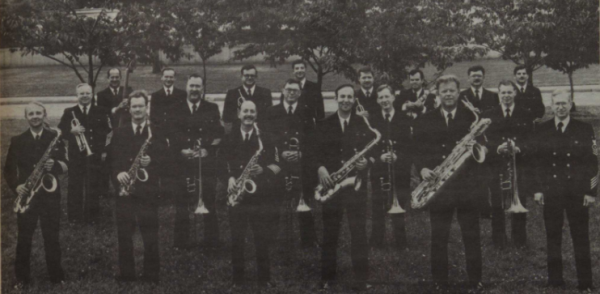Removing the “R-Word” from our Language
Last month, Sen. Kamala D. Harris (D-Calif.) became subject to criticism for appearing to agree with a voter who implied that President Trump’s actions were “mentally retarded.” The voter had asked Harris a lengthy question during her New Hampshire campaign stop in September, at one point asking, “What are you going to do in the next one year to diminish the mentally retarded action of this guy?”
“Well said, well said,” Harris replied. Later, when asked by CBS News, Harris called the term “incredibly offensive” and hoped that in 2019 “people would have a of much better understanding of how hurtful a term like that can be but also the history behind it.”
The word “retard” stems from the Latin verb retardare, meaning to hinder or make slow. It first became a medical term in the late 19th century when medical professionals used mental retardation to describe people with significant intellectual impairment. Today, in modern America, it is considered offensive and pejorative slang to describe something as stupid or foolish. “[The word “retarded”] is short for mentally retarded, in some respects,” said John Massella, director of the Office for Students with Disabilities. “Although, the word retarded itself has taken up a negative connotation because it has been continually paired with mentally retard.” –MORE–
Freshman Roshini Sanakkayala said that she doesn’t use the r-word as she has no reason to. Yet, she has seen her peers use it as an insult or a derogatory term. Often, Sanakkayala said she’ll tell them not to use the word. “They’ll be like ‘oh, dude, you’re a retard,’” said Sanakkayala. “Then you’ll be like ‘that’s not funny’ even if they were trying to be funny.” For others, depending on the environment they grew up in, saying the r-word isn’t as taboo. Only, when they move away from home and the people around them change do they realize the weight of the word.
Sociology professor Codie Stone said that he used the word growing up, calling it a common phrase. It wasn’t until he began college did he realize the impact of the word. “I started college when I was 18,” said Stone. “It was around that time when I started to hear pushback. Once you start to hear that pushback, every time I heard it come out of my mouth, I was like ‘ew, gross.’” Though senior James Campbell never uses the word in public or around people he didn’t know, he said he grew up with the word. According to Campbell, students didn’t think “that much about it” in high school when using the word. “I would say it as a joke,” said Campbell. “I would never say it to a person that has a disability. Growing up, my family says it all the time. So, I never thought it to be a bad thing.” He started to rethink how he viewed the r-word after entering college. “When I came to college, I feel like there were a lot more different kinds of people and people who were offended. It was eye-opening because in high school no one ever took it that seriously.”
Stone said that during his time as a professor, he has had a few students use the term in a classroom setting or assignment. He is quick to remind students of the word and what it stands for as he thinks it’s important to have the conversation in the classroom for other students to hear. “Generally, when I’m in class, I try to correct people kindly, recognizing that most of the students that I have or had in the past… are beginning their journeys of understanding and social justice learning,” said Stone. “I’m not trying to make people feel bad because I use those words. You just gotta learn. And the only way you can learn is if somebody confronts you with it.”
Campaigns like “Spread the Word to End the Word” encourage people to strike words like “retard,” “retarded,” and “-tard” from their everyday vocabulary. “Spread the Word” cites the term as hurtful because it’s exclusive, offensive, and derogatory. According to their website, spreadtheword.global, “the campaign focused its first 10 years on addressing a particularly powerful form of exclusion: the word ‘retard(ed)’. Over 10 years, leaders and self-advocates collected millions of digital and physical pledges to end the R-word.”
Massella advocates for the usage of the term “intellectual diversity” or “neurodiversity” when discussing individuals that have any type of intellectual disability or “difference in processing information.” “As a clinician or a counselor, words are extremely powerful,” said Massella. “When you add to that specific terminology and voice intonation, timing, those are all things that can have an impact upon what words mean and how they sound.”
The extinction of the r-word from modern language is realistic, according to Massella. However, in order to make a change on a macro-level, such as cultural bodies or legal systems, it must see change on a micro-level. This micro-level change relies on individualized change and people choosing to speak up.
“When you hear [the word being used] with another person, you say ‘dude, that doesn’t sound right’ or ‘we don’t use that terminology anymore’ or ‘try a term that’s different’ or ‘that offends me.’”

Hannah Wyman is a senior at California University of Pennsylvania majoring in English with a concentration in Journalism and minors in both Women's Studies...





